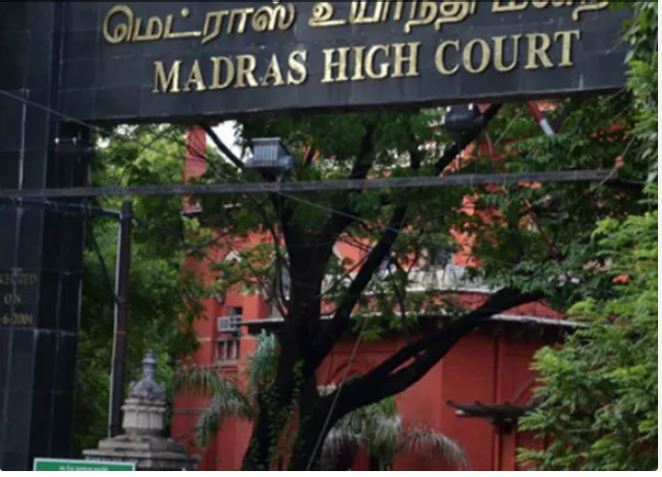The Madras High Court dismissed a Public Interest Litigation (PIL) filed challenging the advertisement issued by the Secretary, Pachaiyappa’s Trust Board, inviting applications for filling in the posts of Assistant Professors, Librarian and Director of Physical Education.
The Division Bench of Chief Justice Sanjay V. Gangapurwala and Justice D. Bharatha Chakravarthy noted that the Pachaiyappa’s Trust runs ten educational institutions and various trusts, charities and endowments. There is infighting amongst the members of the trust. This court appointed an Interim Administrator. However, the elections have not taken place till date and the Interim Administrator is managing the affairs of the said trust.
The counsel for the petitioner strenuously contended that the Interim Administrator has no power to issue the advertisement inviting applications for filling in various posts. The only purpose of appointment of the Interim Administrator is to conduct elections and no further. The act of the Interim Administrator inviting applications for filling in the various posts is beyond his authority.
The counsel for the petitioner submitted that a Division Bench of the High Court in the appeal of 2019, under order dated 6.12.2019, had expressed doubt about the power of the Administrator to make appointments. According to the counsel for the petitioner, the prior permission is also not obtained from the Education Department for issuing the notification/advertisement inviting applications for filling in the posts. The same is mandatory. Learned Counsel relies upon the letter of the Joint Director of Collegiate Education, Chennai Region, dated 10.2.2024. When illegality is committed in issuance of advertisement, public interest litigation is maintainable. He relies upon the judgment of a Division Bench of this court in the case of V.Rajesh Kannan v. The State of Tamil Nadu and others, 2017 SCC OnLine Mad 15429.
He further submits that the permission has not been obtained before issuance of the advertisement and the workload vis-a-vis the number of posts available is required to be taken into consideration. In respect of Mathematics subject, the strength of the students is less and no sufficient workload would be available to the teachers.
Om Prakash, Senior Counsel appearing on behalf of respondents 1 and 5, submits that the advertisement is issued by the Secretary and not the Interim Administrator. The term “Secretary” is defined under Section 12 of the Tamil Nadu Private Colleges (Regulation) Act, 1976 as “Every College Committee shall have a Secretary who shall exercise such powers and perform such functions as prescribed.” He further submits that the appointments will be made by the College Committee and not by the Interim Administrator. The petition is misplaced and filed with an oblique motive. There are 132 vacant posts as per the sanctioned staffing pattern of six colleges.
Upon hearing the arguments and going through the documents placed on record, the Court noted that the petition is misplaced and not based on correct facts.
The entire argument of learned counsel for the petitioner is directed against the Interim Administrator. The challenge is that the Interim Administrator has issued the advertisement. He has no power to issue the advertisement.
The advertisement inviting applications for filling in the posts is issued by the Secretary. The Secretary is authorised to issue it as per the provisions of the Act of 1976. The advertisement nowhere states that the same is being issued by the Interim Administrator. A statement is made by learned Senior Counsel for respondents 1 and 5 that the appointments shall be made by the College Committee and the Interim Administrator is a part of the College Committee.
A Division Bench of the High Court in the case of P.Ravichandran v. State of Tamil Nadu and others, 2013 5 LW 514, relied upon by the counsel for the petitioner, has observed that there is no requirement under the Act of 1976 and the Tamil Nadu Private Colleges (Regulation) Rules, 1976 to seek prior permission to fill in the vacant posts in an aided college, which has already been sanctioned for the academic year by the Director of Collegiate Education under Rule 11(1) of the Rules of 1976. In the instant case, the advertisement states that applications are invited against sanctioned posts, meaning thereby that the sanctioned posts are sought to be filled in under the advertisement.
The colleges cannot function without Assistant Professors and the staff. 130 posts of Assistant Professors are vacant in six colleges. If the posts are not filled in, the educational activity would be paralysed. The loss would be to the students.
“In the first place, without ascertaining the real facts, the petition ought not to have been filed. The posts cannot remain vacant for a long period. The petitioner should have thought twice before filing the petition. The delay in filling in the posts would affect the educational standards of the institutions/ colleges. If the colleges are run without the required staff, then it may face dire consequences at the hands of the universities, even to the extent of withdrawal of affiliation,” the order reads.
At this stage, the counsel for the petitioner seeks withdrawal of the amount. In fact, the Court had directed the petitioner to deposit a sum of Rs.1 Lakh to test the bona fide and as a security. The counsel for the petitioner submits that had the real facts been brought to the notice of the petitioner, he would not have filed the petition.
The counsel for the petitioner graciously submits that out of the amount of Rs 1 lakh, the petitioner would give Rs 25,000 to the Pachaiyappa’s College, Chennai, for upkeep of the premises.
In view of some bona fide shown by the petitioner, the Court directed that the amount of Rs 25,000 be remitted to the Pachaiyappa’s College, Chennai, and the remaining amount of Rs 75,000 be allowed to be withdrawn by the petitioner.


